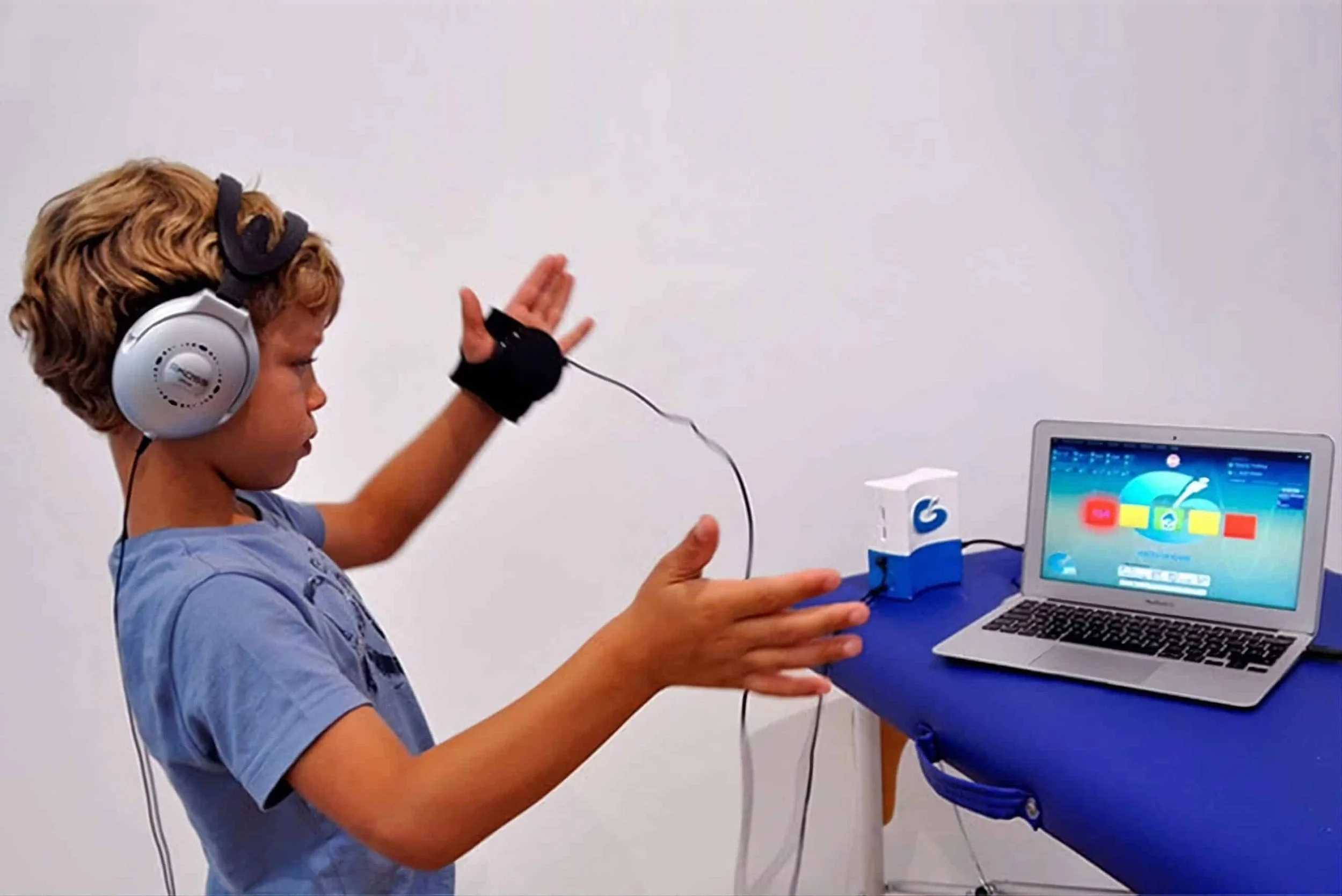Linke Therapy is very excited to offer interactive metronome as a therapeutic tool to our children.
We believe that Interactive Metronome® (IM) can help your child strengthen their sense of timing and rhythm. This ‘internal clock’ is important for so many everyday skills—like paying attention, staying focused, organizing tasks, speaking and listening, moving with coordination, processing sensory input, and managing behavior.
With fun, game-like activities and real-time feedback, IM training helps children build the foundation they need for learning, development, and greater success in daily life.
For more detailed information about Interactive Metronome® (IM) and how IM training helps to overcome a wide variety of impairments, including success stories and research studies, please check out following link:
https://www.interactivemetronome.com/interactive-metronome-for-pediatric-applications-conditions
One of the greatest advantages of IM is that training does not need to be limited to the clinic. Through IM-Home, and under my professional supervision, your child can complete sessions at home on a schedule that aligns with your family’s routine—ensuring both consistency and convenience.
Interactive Metronome® (IM) at Linke Therapy
What is Interactive Metronome® (IM)
Interactive Metronome® (IM) is an evidence based, engaging therapeutic computer-based training program, designed to improve timing, rhythm, and coordination. The system uses auditory and visual cues, providing a metronomic beat that users must synchronize their movements and responses to. This feedback loop helps participants develop better timing and rhythm in their physical and cognitive activities.
Who can benefit from Interactive Metronome?
1. Children with developmental disorders
Children with developmental disorders, such as Autism Spectrum Disorder (ASD) or Attention-Deficit/Hyperactivity Disorder (ADHD), often struggle with timing and coordination. Interactive Metronome has shown promise in helping these children improve their attention, focus, and self-regulation.
2. Children with learning disabilities
Many children with learning disabilities face challenges in processing information. IM training can enhance auditory processing skills, which are crucial for reading and writing.
3. Children with sensory processing issues
Children with sensory processing difficulties may struggle with organizing and responding to sensory information. IM can help them improve their ability to process sensory input and respond appropriately.
4. Children with motor skill delays
Whether due to developmental delays or other conditions, some children experience challenges with fine and gross motor skills. IM training can improve coordination and timing, leading to enhanced motor control.
How can Interactive Metronome help your child?
1. Motor skills
One of the primary benefits of IM is its ability to enhance motor skills. Research indicates that children who engage in IM training show improvements in coordination, balance, and overall motor planning.
2. Cognitive functions
Interactive Metronome training also supports cognitive functions such as attention, memory, and executive functioning. By improving timing and rhythm, children can enhance their ability to focus and process information efficiently.
3. Sensory processing
By synchronizing the body’s internal clock IM helps the brain and body communicate more effectively which can improve the way a child responds to sensory input
4. Emotional regulation
Through improved self-regulation and focus, IM can contribute to better emotional control. Children learn to recognize and manage their responses to stimuli, fostering emotional resilience.

